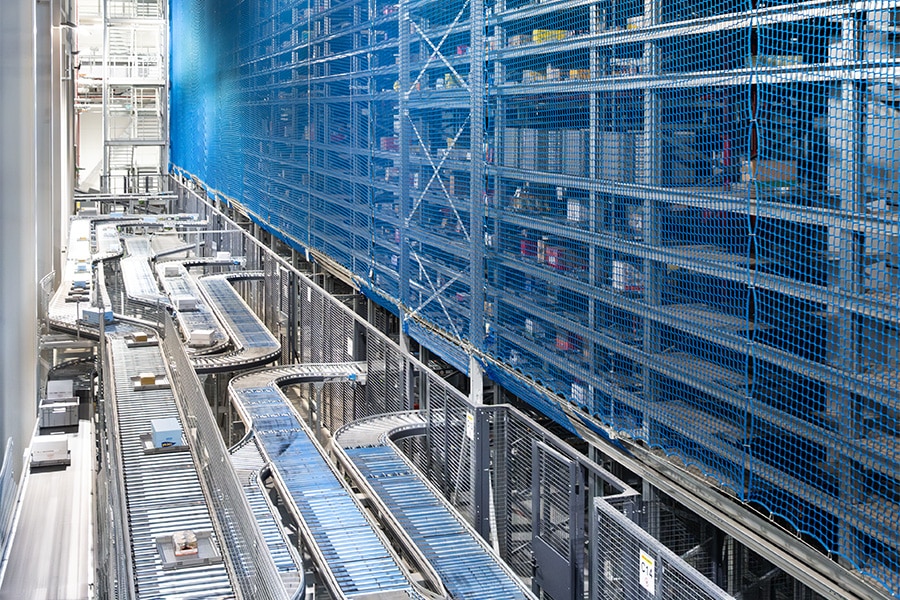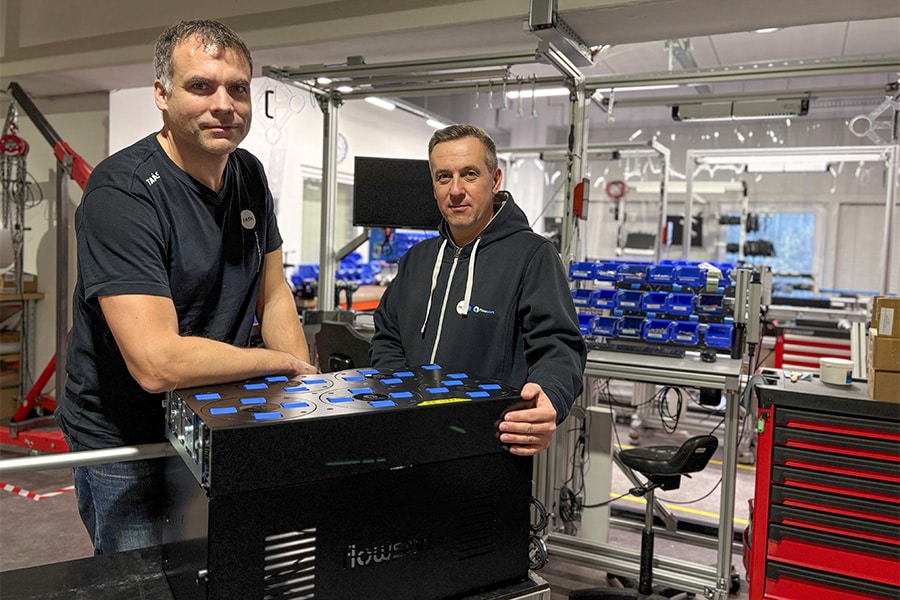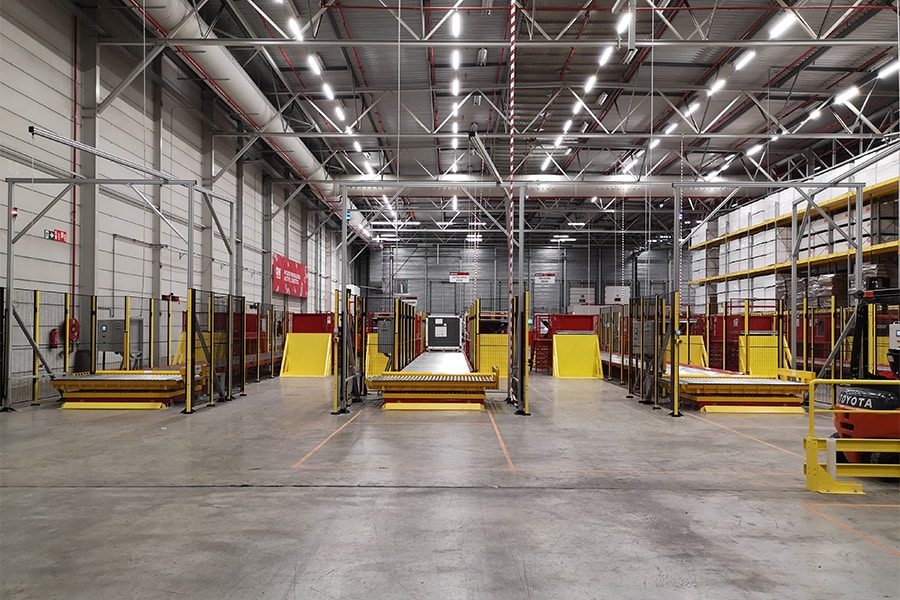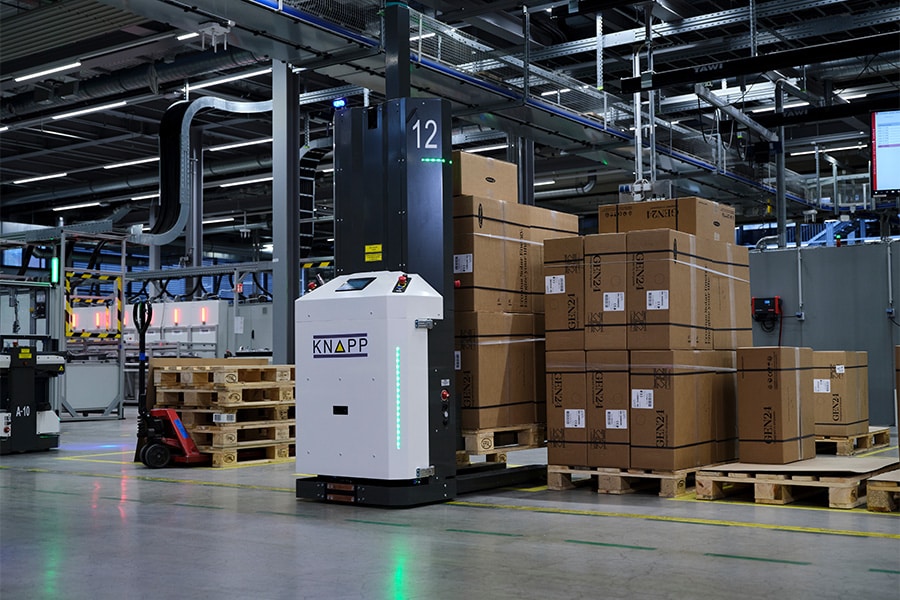
Circular vision, urban precision
An old tea factory site close to Brussels transforming into a state-of-the-art e-commerce center? This is no coincidence for Montea, but a deliberate choice in line with their long-term strategy. The former Unilever site in Forest was acquired back in 2008. Today, the same spot forms the backdrop for (among other things) a brand new Home Delivery Center by Delhaize, designed for efficiency, sustainability and urban distribution.
The site was redeveloped in phases: first for Metro (now Sligro Food Group), then for Option and an IT company. The Delhaize store is the fourth and final phase. Where tea bags from Lipton used to roll down the conveyor belt, today refrigerated delivery trucks with online orders head for Brussels living rooms.
For the realization of Delhaize's new e-commerce distribution center in Forest, Montea again collaborated with TPF Engineering. No accidental choice. "We already had a long track record together, and also had a historical knowledge of the site through involvement in past projects," says Erwin Vangenechten, Director Division "Building" at TPF. "That bond of trust is only getting stronger."

BREEAM Excellent: not a hollow label, but practice
TPF Engineering is a multidisciplinary engineering firm that offers architecture, stability, engineering and infrastructure under one roof. It is precisely this integrated approach that makes the firm a sought-after partner for logistics and industrial projects, especially when sustainability plays a prominent role. "Montea was explicitly aiming for BREEAM Excellent on this site, and that had a direct impact on our input - from the concept phase," says Vangenechten.
But Montea goes further than BREEAM Excellent certification. Dirk Van Buggenhout, Chief Sustainability Officer at Montea: "We work with a materials passport and carry out a Life Cycle Analysis (LCA) for each project. This allows us to map the entire carbon footprint, from extraction to demolition. Moreover, the roof combines solar panels (1.5 MWp) with a green roof - a specific requirement of the municipality of Forest."

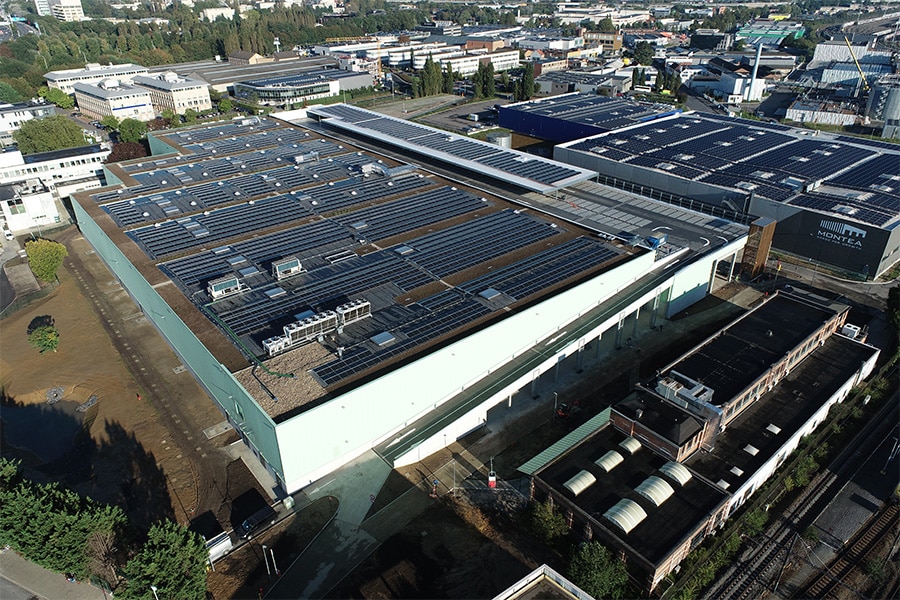

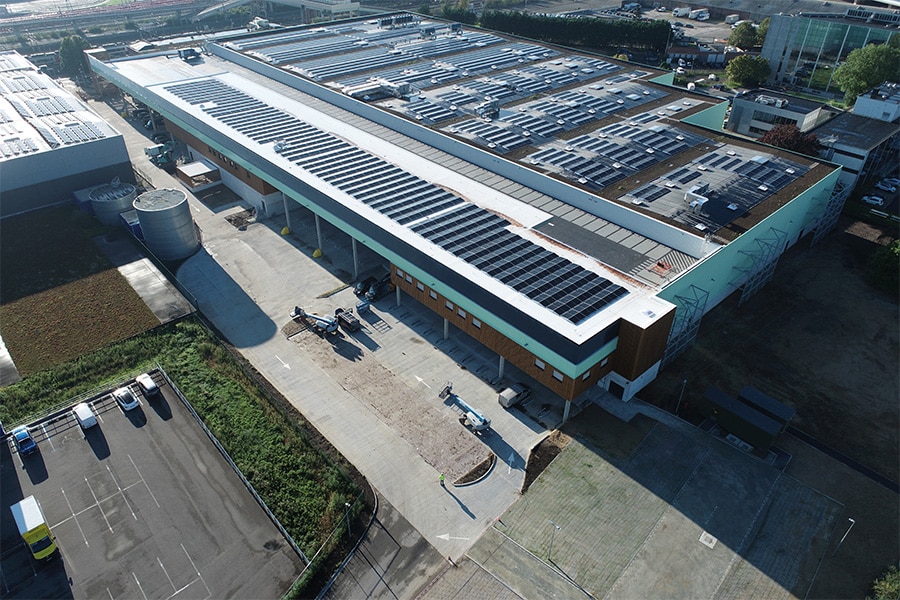
Demolition as a starting point for circular thinking
That sustainability ambition is not merely a marketing story. "The site has a long history - Unilever, Lipton and Iglo-Ola, among others, were located here - so in terms of remediation, reuse and energy, too, we had to be really thoughtful," says Van Buggenhout. Think about the orientation of the building, the technical installations (heat pumps, ...), insulation, water management (wadi), rainwater recovery, roof parking, ... Every choice counted."
In the demolition of the old Lipton buildings, nothing was simply demolished. Materials such as windows, carpets and light fixtures found a second life. The concrete was ground up and reused as sub-foundations. Even façade panels were given a second chance in the new design.
The building envelope was also considered: EPDM roof foil (with a lifespan of 40 to 50 years) replaced the classic and cheaper PVC variant. And unlike many logistics buildings, the loading docks were finished airtight. Rainwater is reused for cooling systems; residual heat from those systems in turn heats the offices. Circular thinking is in every building layer, from design to completion.

Track27: vision to 2035
The project in Forest fits seamlessly into Track27, Montea's four-year strategic plan that targets sustainable growth and a real estate portfolio of €3.5 billion by 2027. Central to this are energy independence, circularity, and a clear exit strategy for fossil fuels.
Today, Montea already has 85 MWp of solar panels spread across Belgium, France and the Netherlands. By 2027 that should rise to 135 MWp. Substantial efforts are also being made in the field of battery energy systems (BESS): 32 MWh of battery capacity was started this year, with a planned rollout to 100 MWh within the same time frame.
"We want to anticipate the electrification wave. Grid congestion and decentralization of energy production require smart solutions," said Van Buggenhout. "In the future, we see our sites evolving into full-fledged energy hubs, with local production as well as storage."
Gas use is also being addressed: over the past four years, all new buildings have been delivered gas-free. For existing buildings, the conversion to heat pumps is in full swing. Montea wants to be completely fossil-free by 2035. "Our Track27 plan is ambitious, but achievable - because it is supported by structural choices, not loose statements," concludes Dirk Van Buggenhout.

Social impact tailored to Forest
The Home Delivery Center creates up to 400 jobs, often for low-skilled profiles. "In a neighborhood with high unemployment, this is an important lever," says Van Buggenhout. Montea played no direct role in this, but did facilitate the collaboration between Delhaize and local partner HUB Brussels, which brings in candidates from the neighborhood.
Mobility is an added bonus: the building is right next to Vorst-Zuid station and a bicycle highway, with several bus lines within walking distance. Ideal, therefore, for a local workforce.
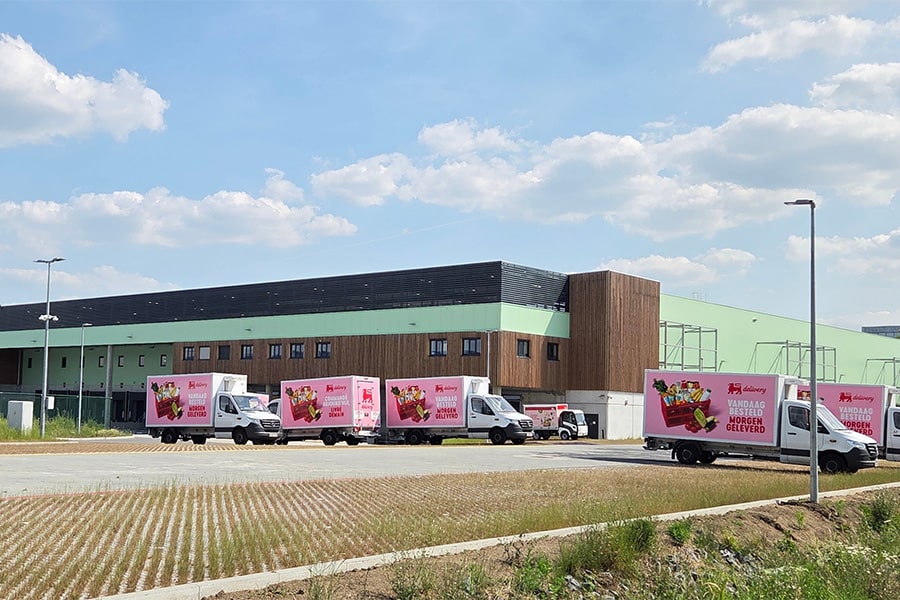
Working together, challenging together
Vangenechten describes the cooperation with Montea as "intense but constructive. "They challenge us - and we challenge them. That just makes it interesting. We've been in this business for a long time, but every project is different. Delhaize's wishes, Montea's requirements, the expectations of the environment and the authorities ... all this has to coincide in a future-oriented whole. And we have succeeded." With a wink, he adds, "We are on historic ground here, by the way: this was once owned by William Lever, the man who laid the foundations for the first soap factory here in 1905, and what would later become Unilever. Nice to see that the Brussels site is once again writing the future with us today."
